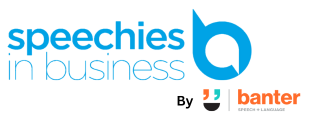As healthcare workers, we share the responsibility to ensure we are delivering health services in a professional, safe, and ethical manner. This week, we attended a very practical workshop hosted by Tony Kofkin and his colleagues from the Health Care Complaints Commission NSW (the ‘Commission’) to better understand the role of the Commission and its complaints management process.
Here are our 13 key takeaways for speech pathologists:
- Speech pathologists in Australia are “Unregistered Health Practitioners”, because we are not currently required to be registered under the Health Practitioner Regulation National Law. You can read more about this here.
- Speech pathologists in Australia are self-regulated. For example, members of Speech Pathology Australia are bound contractually by the Code of Ethics, and Certified Practising Speech Pathologists are also bound by professional self-regulation professional development and other obligations.
- Self-regulation doesn’t mean Australian speech pathologists are completely unregulated, however. Speech pathologists in New South Wales, Queensland, South Australia and Victoria, are subject to “negative licensing” under statutory Codes of Conduct. In NSW, for example, speech pathologists must display and are bound by the Code of Conduct for Unregistered Health Practitioners. This Code of Conduct is set out in Schedule 3 of the NSW Public Health Regulation 2012. A National Code – which is very similar to the NSW Code – has been implemented in South Australia, Queensland, and Victoria, and is being implemented across the other States.
- Sometimes, clients, families or others may wish to make a compliant about a speech pathologist. Most of the time, this is best managed directly with the speech pathologist in question. Speech Pathology Australia has a complaints system, including an Ethics Board to investigate alleged breaches of the Code of Ethics. However, people can also make complaints about speech pathologists to the Health Care Complaints Commission (or its equivalents in other States). This is not very common, with the most serious complaints being lodged with Speech Pathology Australia and investigated by the Ethics Board.
- The Commission is independent of Government (including the Minister for Health) and is obliged to investigate every written complaint it receives, although protecting public health and safety is its paramount consideration.
- The Code of Conduct outlines minimum standards for safe and ethical practice, and includes clauses about:
- the need to have a clinical basis for treatment;
- competence;
- informed consent;
- infection control;
- improper relationships;
- not making claims to cure serious illnesses;
- working when impaired (e.g. by mental or physical illness or when under the effects of drugs and alcohol);
- professional indemnity and other insurance requirements;
- record keeping/progress notes;
- first aid;
- privacy; and
- displaying the Code.

7. Common complaint issues include:
- professional conduct, including elder abuse and theft;
- treatment, including treatment advice that causes significant harm; and
- communication issues, including abruptness and refusal to answer questions.
8. If a complaint is received, the Commission generally seeks records from the speech pathologist. The Commission has coercive powers if you do not respond.
9. Investigations follow a two stage test: (1) Is there a breach of the Code of Conduct? and (2) is there a risk to public health and safety? The Commission can seek expert advice if needed.
10. The Commission has the power to make interim and final prohibition orders, preventing the speech pathologist from providing health services or imposing conditions (e.g. training, supervision) on the provision of health services. Reciprocal arrangements are in place with Queensland and South Australia (but not Victoria) to ensure that prohibition orders made in one of these states apply to the others. In practical terms, this means, as an example, a speech pathologist won’t be able to provide health services in Queensland if a prohibition order has been issued in NSW (and vice versa).
11. The Commission can also make public statements about health practitioners, and/or make comments to the speech pathologist to help the speech pathologist improve her or his practice.
12. If a speech pathologist in NSW is unhappy with the outcome, she or he can seek a review by the NSW Civil and Administrative Tribunal.
13. The Health Care Complaints Commission publishes a Register of Orders on its website. You can access it here.
To access an A3 poster of the Code of Conduct to display at your clinic or business, see the Health Care Complaints Commission’s website here.
Related articles:
- Australian speech pathologists: your client is receiving an unsafe treatment from an unregistered health practitioner. What should you do?
- Dealing with negative online reviews: evidence-based strategies for speech pathologists
- 5 steps I took to comply with Speech Pathology Australia’s advertising rules
Image: httpss://tinyurl.com/y59p35ph


Leave a Reply